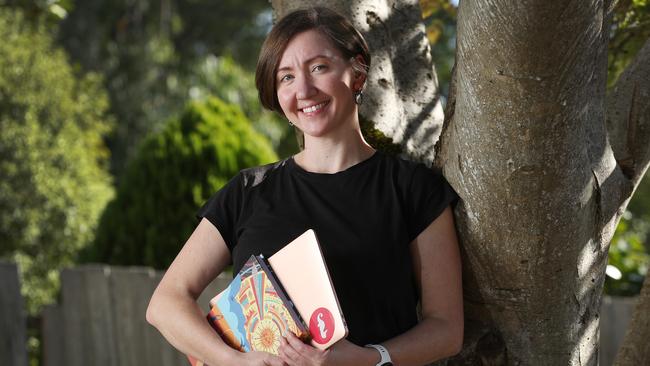Industry certification now part and parcel for tech universities
Universities are embedding industry certifications into their degrees to allow graduates – and dropouts – the best chance to hit the ground running in the nation’s booming tech sector.

Universities have begun embedding industry certifications into their degrees to allow graduates, students and dropouts the best chance to hit the ground running in the nation’s booming tech sector.
The move, which was implemented this semester at the University of Sunshine Coast in Queensland, is the latest play from the higher education sector as the war for tech talent runs hot.
USC school of science, technology and engineering deputy dean Rania Shibl said it was only practical for students to get the most out of their degrees and not be forced to sit more examinations to find work.
“The line of thinking was, well, we’re already teaching them, why do they need to go off and do more certifications? Can’t we just embed them into the certification?” she said. “If you don’t embed certifications or make them mandatory, students often put them on the backburner, treating it as if they’re studying for something else again.”
The university rolled out several certifications – including information technology specialist Python, information technology specialist database, EC Council ethical hacker associate and EC Council certified forensic associate – which can be taken within a bachelor of computer science and ICT or in a master of cyber security and forensics.
Each certification retails for about $500. Asked who paid the fees, Dr Shibl said: “We bear the cost of that.
“The way we’ve done it is staggered, meaning students have the opportunity to get a certificate in year one, year two and year three. That means that by the time they graduate, they could potentially have four or more certifications.”

USC computer science student Jeshin Chetty-Sardar, 19, was one of several students who took an examination for a JavaScript course on Tuesday as part of a stack development unit. It’s the second he has earned including a Microsoft Azure AI fundamentals certification through his practical machine learning unit.
“Maybe down the line I would have gone for the certificate but having it now and having it as part of the course helps force us to be industry-ready. You could say it’s killing two birds with one course,” he said. “It has helped a lot with understanding the course material. The JavaScript certificate went more in-depth with certain sections of coding.”
The certifications have helped Mr Chetty-Sardar land a paid internship with Dell, a role in which he helped improve coding courses for children.
“The money was very useful and helped a lot, but the experience was great in itself,” he said.
Others are taking a less traditional route. Karoline Silva, a 40-year-old former office administrator, has completed a nine-month intensive course that promised the skills required to be an entry-level software engineer.
The course is offered by the Holberton School, a Silicon Valley start-up that began operating in 2016, that launched locally this year.
“I want to be employed, I want a career, I want a job that is satisfying,” she said. “I can see now that you don’t need to be gifted at maths to get through the course.”
Dr Shibl said USC had big plans to expand its certification offering to improve the local talent pool.
“We’re starting off slowly, but we have hit the ground running. We’re now looking to include certificates in the business school and we’re looking to expand beyond Microsoft with AWS, Google and IBM,” she said.
The move is setting a precedent among local tech companies, with Dell, Ingram Micro, Entag, The Urban Institute, Youi, AfterDark Technology and DataMC hiring and training USC students.
Kris Carver, group chief executive at Entag, which hired about 130 staff, nine of whom were locals who recently graduated or were still studying, said industry certification saved both the company and employee time
“USC graduates are now some of few who are coming out of university with industry-relevant certifications,” he said. “When I graduated, I spent my first six months to a year becoming relevant. Passing industry exams is not just that tick in the box, you’re going to enter the industry on a really strong point.”
Dr Shibl said one of the best parts of the offering was that even if students didn’t pass their certifications, they wouldn’t necessarily fail their university subject and would be more prepared to take the examination again.
“We thought if we give them something in their first year, they’ll have something to put on their CV. It gives them the ability to be employed,” she said.








To join the conversation, please log in. Don't have an account? Register
Join the conversation, you are commenting as Logout